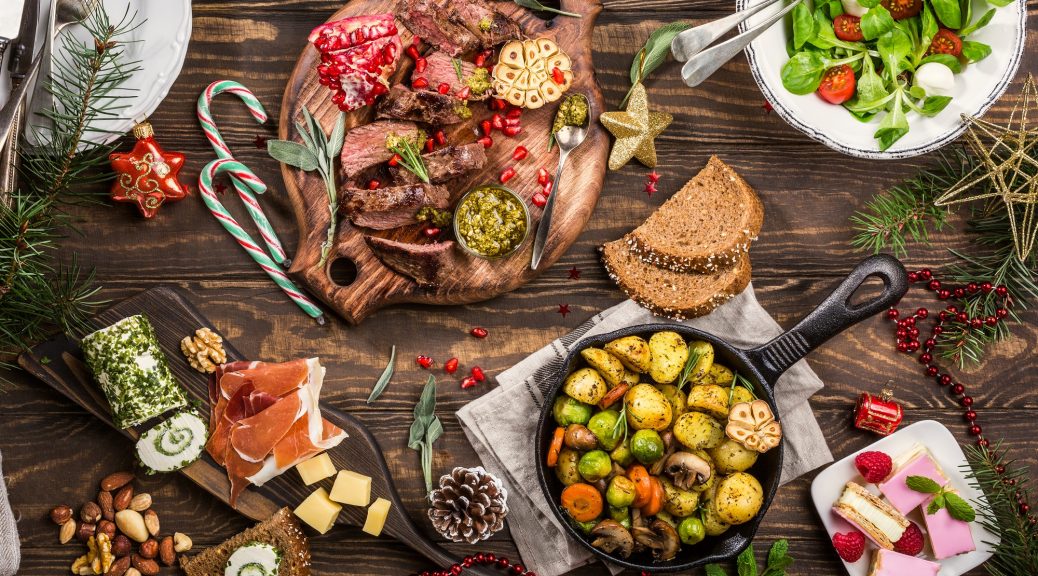
How to beat the festive bloat
Many of us are all too familiar with the ‘festive bloat’! Overindulging in our favourite foods and beverages may please our taste buds, but it can leave us feeling bloated and uncomfortable. However, it doesn’t have to be this way, as Kate Delmar-Morgan, (BSc Hons, mBANT, rCNHC), Registered Nutritional Therapist from the Institute for Optimum Nutrition explains.
- Balance out richer foods
Combine complex carbohydrates (such as wholegrains) with a good source of protein (fish, eggs, meat, tofu or legumes), some healthy fats (extra virgin olive oil, avocado, coconut, nuts, seeds) and vegetables in each meal. This will help to regulate your energy levels, keep you full for longer and prevent cravings for snacks or that extra portion of dessert.
- Plan ahead and stick to meal times
In the days between Christmas and New Year, it’s easy to graze the days away. Try to stick to regular meal times instead – breakfast, lunch and dinner – and consider what you’re going to eat each day so that you have all the (healthy) ingredients you need in the cupboards and fridge. You don’t have to plan every single meal, but thinking about your evening meal might stop you from turning to cheese and chocolate every night.
- Freeze leftovers
Who says everything needs to be eaten up before New Year? If you find yourself with lots of leftovers, freeze some for later in January. Chocolate and other confectionary will keep too (somewhere cool), so pace yourself and save some for another day! (Confectionary should ideally be eaten after a balanced meal, like you would a dessert, as this will keep blood sugars more stable.)
- Keep moving
We all enjoy snuggling up on the sofa with a Christmas movie, but make sure you’re also taking the time to stretch your legs and move your body. Get the family together for a winter walk, try some yoga or head out for a run. Avoid eating on the sofa too – sitting at the table ensures your body is in the correct posture for digestion.
- Are you mouth hungry or stomach hungry?
A good way to avoid overeating is to ask yourself whether you are mouth hungry or stomach hungry. Mouth hungry is likely to be boredom hunger, whilst stomach hungry is based on a physical need for food. If you could eat a chicken breast and vegetables right now, then that’s more likely to be stomach hunger. If you could eat a couple of biscuits or a mince pie, that’s more likely to be mouth hunger. You can address the mouth hunger with movement and some water or a cup of calming herbal tea. Then see whether the hunger is genuine after 10-20 minutes.